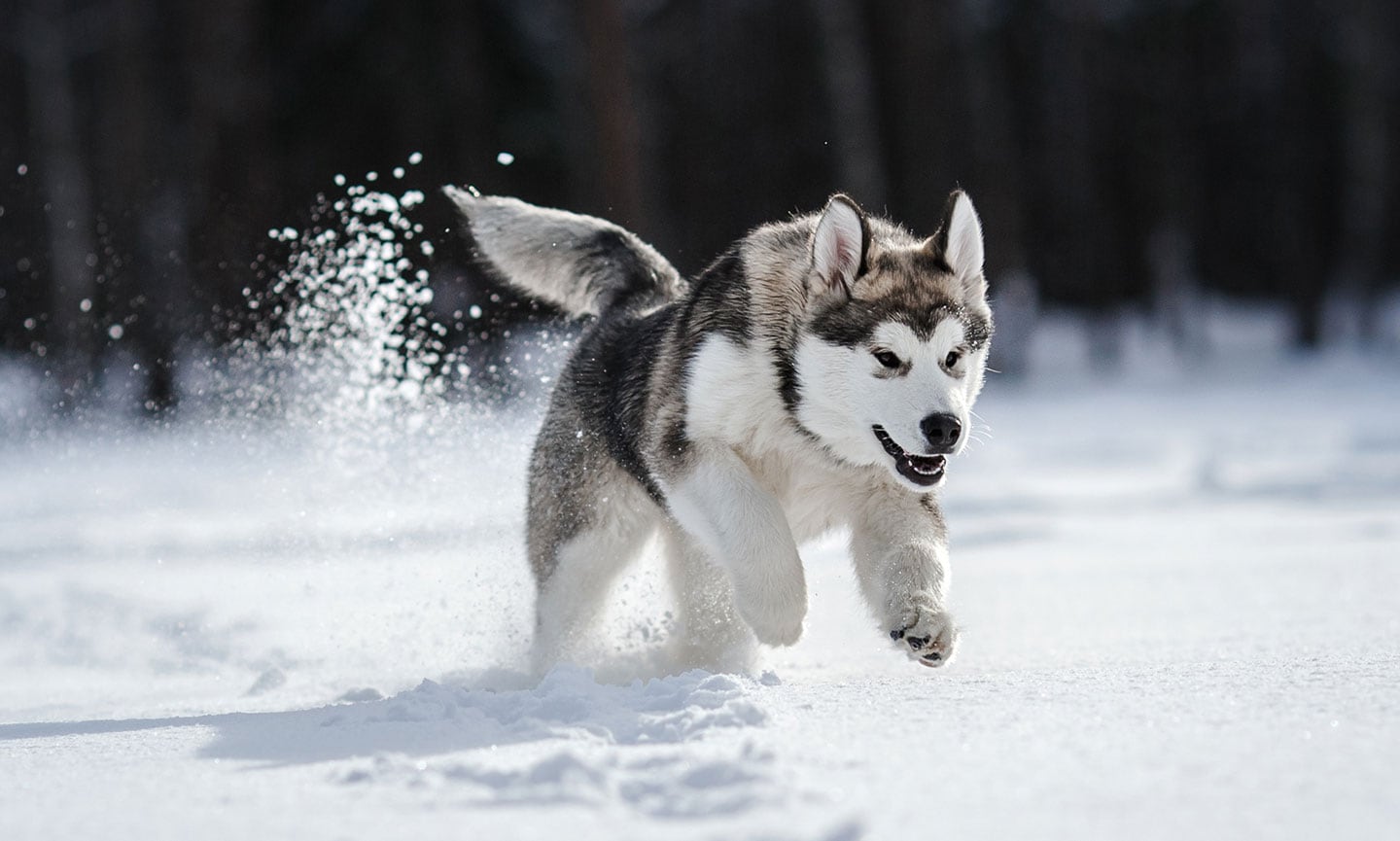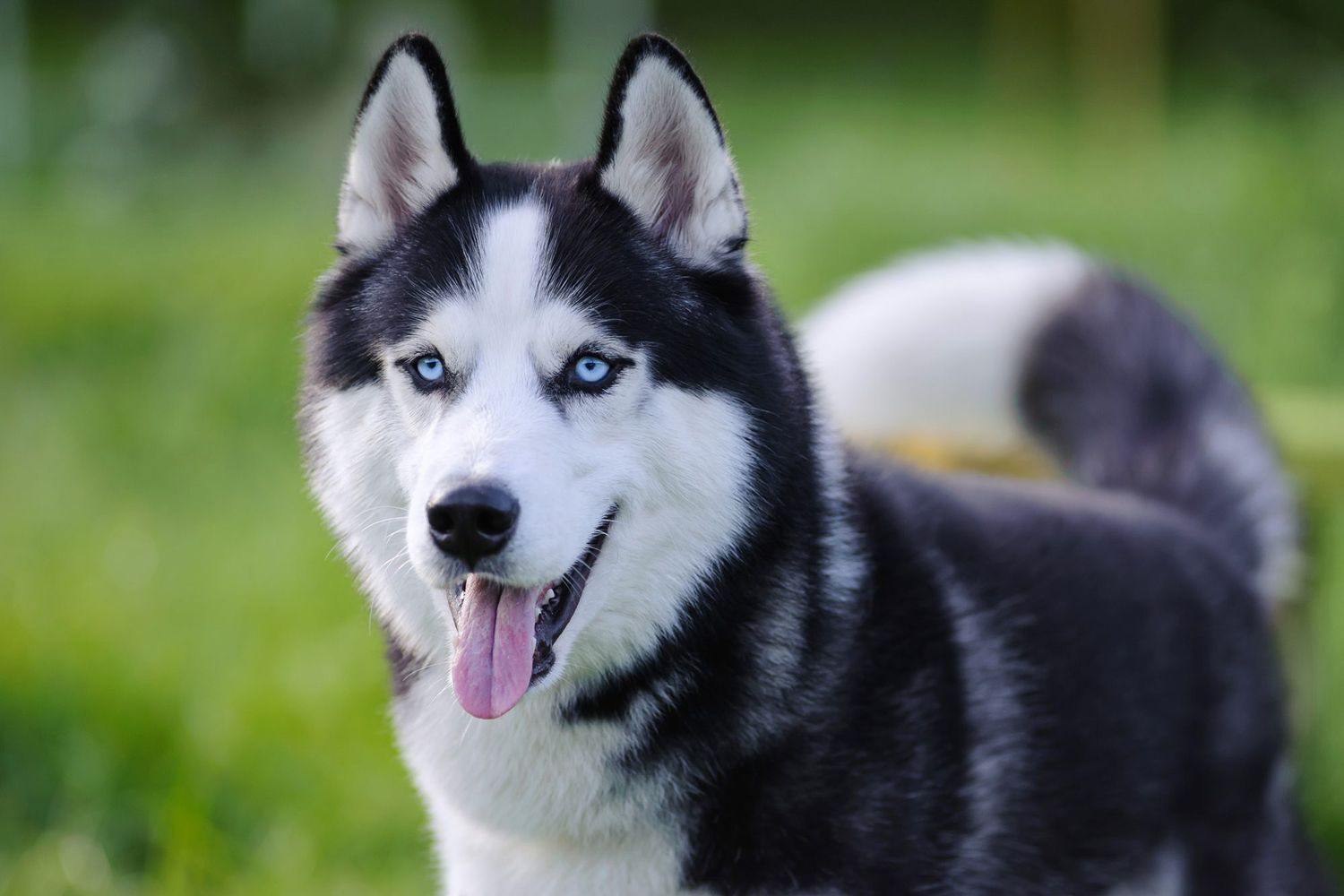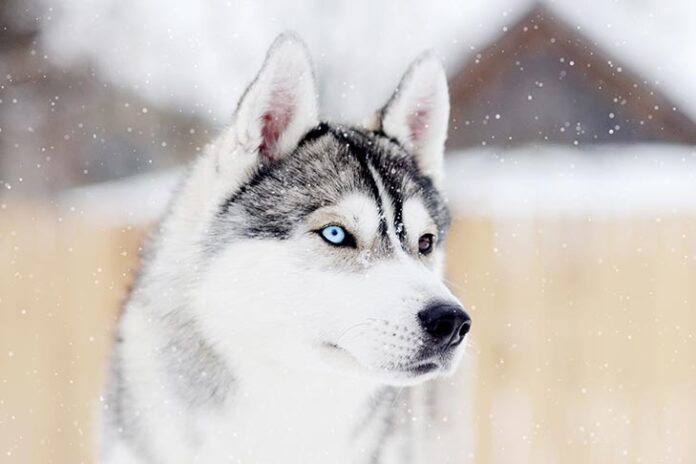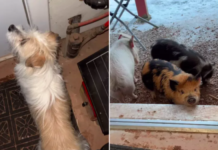Huskies are a stunning breed and one of the most popular. They make wonderful pets, but in case you are curious about their intelligence. We conducted some more research and came up with the following.
How intelligent are huskies?
Huskies are clever and self-reliant canines. They were developed to be working dogs and have a reputation for being a smart breed. Huskies may be a little more difficult to train than other breeds, not because they don’t comprehend what you’re asking of them, but because they can be obstinate.
When it comes to intellect and personality, Huskies are a more complex breed. Continue reading if you want to understand more about husky intellect, temperament and demeanour, history, and more.

More on Husky Intelligence
Huskies, as previously mentioned, are one of the most intelligent dog breeds. They’re even number two on dogster.com’s list of the top ten smartest dog breeds.
Huskies are a different breed of intelligence. They aren’t your typical intelligent dog breed that is docile, trainable, and eager to listen. Huskies are known for their independence, which contributes to their intelligence. They are excellent at looking after themselves and navigating their surroundings.
Huskies are both clever and obstinate due to their intelligence. They are renowned for being very independent, which makes training them tough. It’s not that they aren’t intelligent enough to figure out what you want them to do; it’s that they are so intelligent that they can decide whether or not they want to do what you say. They will determine if it is worth their time, and if it isn’t, they will not pursue it.
This is one of the reasons why some people find Huskies difficult to own. When it comes to getting children to accomplish anything, they may be unexpected. They may respond promptly when you call them one day and then run down the street totally disregarding your order the next. This may be aggravating for some business owners.
They follow their intuition as well. This may be irritating at times, but nearly everything they do has a purpose and adds to their intellect.
They were raised to be self-sufficient and survive. They have a reputation for digging a lot. They’ll do it for a variety of reasons, including shelter, hiding items, and even catching an animal they’ve seen.
They don’t need much food to live and can obtain it on their own. This is why they are dangerous near cats and other small animals in the home.
Huskies are not violent dogs, but they have been known to kill or devour cats, even after months or years of living with them. It’s better to keep Huskies away from tiny animals or avoid having them nearby.
Huskies are physically built to run. They were bred to pull sledges and run for long distances. That aspect of breeding has been preserved till today. There are many accounts of owners confining their Husky, and the dog attempting to escape.
Depending on what is keeping them confined, they jump fences, dig holes under gates, and do other things that are much more complex and well-thought-out.
If Huskies manage to flee, they often run until they no longer want to. The more you pursue them, the faster they will flee until they are ready to return, but fortunately, they are excellent navigators.
Their ability to travel is another trait that places them high on the intelligence scale. This is due to their previous life as sledge dogs. They are renowned to be able to find their way back home, even if it is hundreds of miles away, even without a driver. They are aware of their surroundings and pay attention to them.

Temperament and Personality
Huskies are one of the most popular dog breeds. Huskies are independent and obstinate, yet this does not make them terrible pets or dogs in any way. According to the American Kennel Club, they are rated 12th out of 193 breeds in terms of popularity.
So, what is it about them that makes them such a desirable breed to own? They are highly friendly and endearing dogs due to their temperament and attitude.
One of the most common criticisms about Huskies is that they are not guard dogs. Strangers do not make them hostile, defensive, or suspicious. Strangers are treated as though they are members of the family, and they are seldom wary about strangers.
They’re social creatures. They are not only fond of humans, but also of other dogs. Because they are pack animals, they will occasionally favour other dogs over humans. It is not advised that more than two huskies live in the same home at the same time since they are more mischievous and get into more mischief when they are in a pack.
They’re also high-energy, puppy-like dogs. Even as huskies get older, they retain their desire to play and have fun. They like running, playing, and exercising.
They’re also renowned for having a silly demeanour. They are eccentric and amusing canines that make their family laugh a lot. They have a zest for life and seem to be having a wonderful time at all times. They aren’t known for barking, but they are anything from silent. To attract attention, they prefer to whine, groan, and scream, and they frequently sound like they’re signing.
They are extremely affectionate and caring creatures. Because of their ability to get along with strangers, intellect, and loving nature, they are a popular breed for therapy animals.

History of the Husky
The Chukchi people of Northeastern Asia were the first to breed huskies. Huskies were employed as both companion dogs and sledge dogs. They would travel hundreds of kilometres on sledges hauled by a group of Huskies when hunting and food were scarce.
Sledge racing became popular with this type of dog in the early 1900s, and it helped huskies acquire popularity. Huskies began to gain popularity and became more well-known. Prior to the advent of aeroplanes and snowmobiles, sledges drawn by Huskies were the most common mode of transportation in arctic settlements.
The Serum Run to Nome in 1925 was one of the most significant events in the history of huskies, and it greatly increased their popularity. In 1925, the town of Nome, Alaska, was afflicted with sickness and required a serum to aid in its recovery.
Unfortunately, the Serum was located 674 miles away in a different Alaskan town. There was no method for the people to get it or have it delivered. Until Leonhard Seppala arrived with his squad of 150 huskies. They covered the 674 miles in five and a half days using the sledge.
Balto, the lead husky during the last stretch of the race, became a hero and is now remembered as one of the most famous dogs in history, with a monument in Anchorage, Alaska, and a memorial in Central Park in New York City.
Huskies received a lot of attention as a result of this, and their popularity skyrocketed all around the globe. They are still popular all around the globe, and some husky-led sledge dog teams still exist.
6 Huskies Training Tips
While Huskies are intelligent, they aren’t always ready to obey, as we’ve discovered. This may make training difficult since, no matter how well taught they are, they might be unpredictable when it comes to listening.
If you’ve never taught a dog before, training a new Husky may be frightening and daunting. I’ve included a few pointers below to assist you with training your new (or old) Husky.

#1: Start Young
When it comes to training a Husky, this is one of the most essential pieces of advice I can offer. Huskies are obstinate creatures that like to march to the beat of their own drum. If you start teaching your Husky while he or she is still a puppy (as soon as possible), whatever they are taught will be all they know. Because that’s how it’s always been, they’ll find a reason to believe what you’re saying.
For example, if they have never been able to get on the couch, they are much more likely to refuse to do so when they are older; however, if you get a new couch when your Husky is a few years old and tell them they aren’t allowed to get on it anymore, they are unlikely to listen because they don’t see a purpose or reason for it.
#2: Spend Time with Your Husky
When it comes to obedience and training, spending time and connecting with your Husky is crucial. You must form a connection with your dog, which is easier to do while they are young. You may establish a connection with your Husky by spending time with them and treating them with love and compassion. This will enable them to trust you.
Huskies are autonomous thinkers, which means they act when they perceive a need. If your Husky has formed a connection with you and trusts you, they will obey your commands. You must treat your husky with respect if you want them to respect you.
When humans train Huskies, or any dog for that matter, they often do it out of fear. If the dog doesn’t do what they’re meant to or doesn’t listen, they’ll scream, become angry, or, in the worst-case scenario, abuse them. This isn’t teaching your dog to appreciate and trust you; it’s instilling fear in them.
This is particularly true for Huskies, who are notoriously independent. If they are living in terror or feel compelled to do anything, they will either flee (which they are renowned for) and not return, or they will start acting out and becoming worse.
#3: Provide Your Husky with Positive Reinforcement
Give your Husky vocal praise when they perform what they’re meant to do. Give them rubs and affection and tell them they’re a nice dog. You may even offer them a reward if they are still in the training stages.
Baby carrots or training treats in smaller portions are great treats to give your dog so you don’t overfeed them with treats.
You’re giving your Husky an incentive and a reason to do what they’re supposed to do by providing positive reinforcement and rewards. They like being petted and, while it may not seem so at times, they enjoy pleasing their owners.
#4: Practice Persistence and Patience
This is yet another crucial point to remember. You must be patient and persistent with your Husky puppy. Don’t allow them to take advantage of you if you order them to sit; at the very least, make sure they are making progress. Don’t quit up or allow your husky to fool you by believing they have no idea what they’re doing.
But don’t confuse perseverance with pushing your husky to do a task. It is possible to be rigorous without being cruel. When it comes to training, always be patient. “If you behave like you have 15 minutes to do anything, it will take all day,” my mother used to say, “but if you act like you have all day to do something, it will take all day.”
You should not force your Husky into something he or she is not ready for. Both parties will be frustrated as a result of this. Take your time, and give your Husky as much time as he needs to learn. It’s important to remember that even little actions add up to progress.
/PalSzaszGettyImages-986629556-4c18eedf6d754e50b32446c9174cda54.jpg)
#5: Always End a Training Session on a Good Note
It is not advisable to devote many hours to a single training session. When all they want to do is play, your Husky isn’t going to sit through that.
The optimum training duration for each session is 10 to 15 minutes, with one to two sessions per day. This may not seem like a long time, but it will be a much more effective method of training in the end. If you train for much longer, your Husky will lose interest and refuse to listen.
Always finish your workout on a positive note and on your terms. This may make your session shorter, but if your husky is doing precisely what you want, cutting your training short isn’t a terrible idea. Allow them to go play after heaping praise on them. It is always preferable to leave them wanting more rather than attempting to hold their attention.
That way, they’ll associate training with good feelings and a desire to learn and exercise more in the future.
Last but not least, even if things become tough, never give up on your Husky.
It is feasible, despite the fact that Huskies have a poor reputation for being tough to teach and obstinate. Every Husky is different, and depending on how much love and attention they get, they may grow up to be some of the most well-behaved dogs in the world. They will be alright if you are really enthusiastic and committed to your Husky. Remember that they are learning with you.
The aforementioned suggestions, when combined with commitment and hard effort, will result in a fantastic dog. Just remember not to undervalue or abandon your husky when circumstances become tough. I can’t promise that training them will be simple, but it will be worthwhile once they become members of your family.

Related Questions:
Are Huskies suitable as family pets?
Huskies make excellent family dogs. They are renowned for not being aggressive and for getting along well with others, particularly youngsters. They also get along with other dogs. They are also renowned for their kindness and love.
What is the average lifespan of a Huskie?
Huskies live 12 to 15 years on average, which is about normal for a medium-sized dog. They’re renowned for being a healthier canine breed that isn’t prone to any particular health issues. Common canine health concerns such as eye disorders and hip dysplasia are the major health issues dogs are in danger of developing.
Is it possible for Huskies to become too cold?
A Husky is unlikely to get too cold. They’re designed to survive temperatures as low as -70 degrees Fahrenheit. While they enjoy the cold and can manage it better, they are versatile canines that, while not designed to withstand severe heat, can live well in warmer regions if given the proper facilities.


















